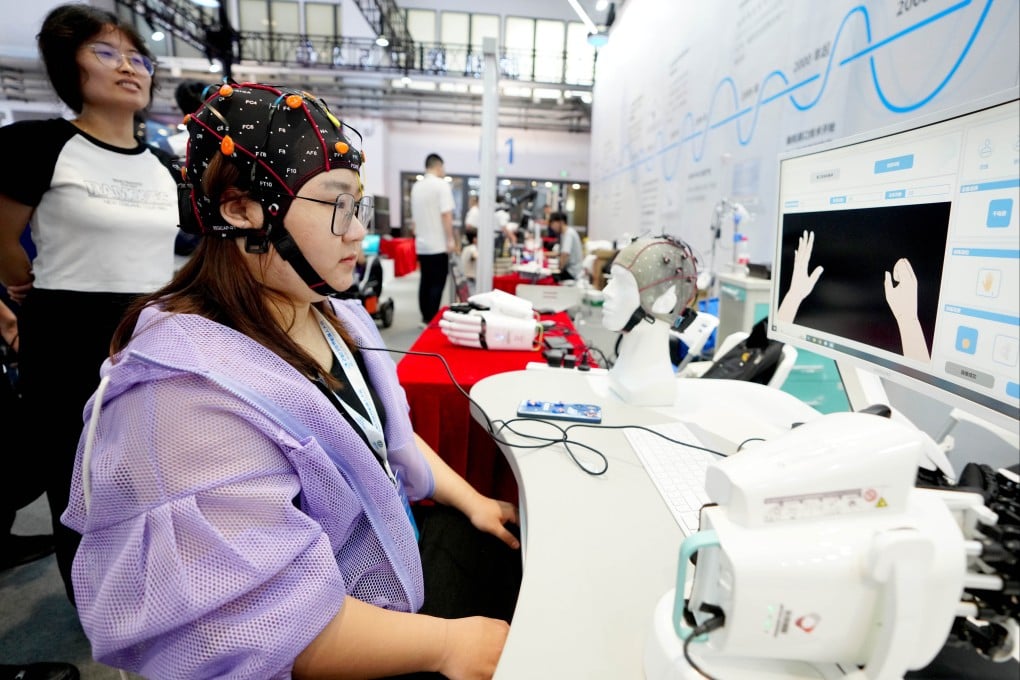China advances in brain-computer interface technology, aiming for US$900 per procedure
The semi-invasive system developed by CIBR and its affiliated start-up NeuCyber NeuroTech have completed their first three human implants

A Chinese brain-computer interface (BCI) company said it had seen positive results from three human implants, matching Elon Musk’s Neuralink in the number of human patients, as China prepares for wider commercialisation of the technology.
Beinao No 1, a semi-invasive BCI system developed by the Chinese Institute for Brain Research (CIBR) in Beijing and its affiliated start-up NeuCyber NeuroTech, completed their first three human implants between February and March this year, the companies said last week.
The Chinese government, meanwhile, is moving to support the market for BCI products, which are inching closer to commercialisation.
The local government in China’s central Hubei province on Monday released the country’s first pricing guidelines for the operation, stipulating that invasive BCI implants should cost 6,552 yuan (US$902) per procedure, and that the price of removal should be 3,139 yuan per procedure. The province set the fitting fee for a non-invasive BCI product at 966 yuan.

The Beinao system allowed paralysed patients, including a paraplegic patient with spinal cord injury and a hemiplegic stroke survivor, to exert mind control to operate computers and robotic arms. It can also decode and output Chinese speech of an ALS patient with speech disorder, according to the companies.